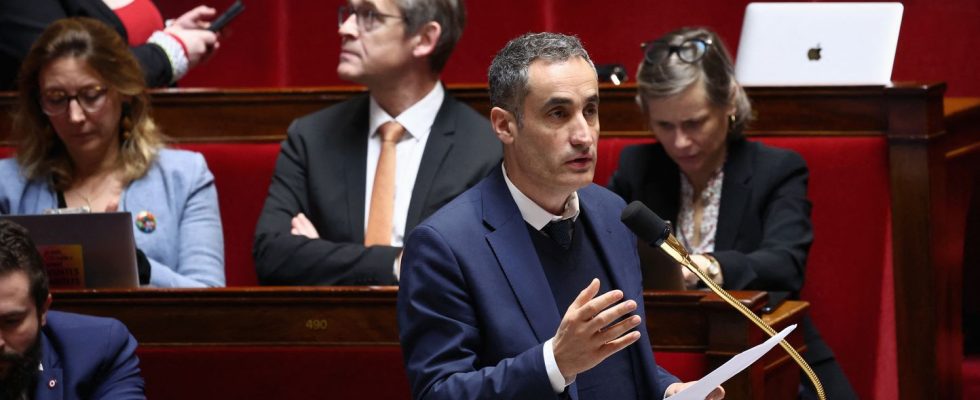From 9 a.m. this morning, he was on the benches of the National Assembly to defend his billon which he worked for a year and a half, aimed at restricting the manufacture and sale of products containing per- and polyfluoroalkyls, better known by the barbaric acronym PFAS, or “eternal pollutants”, suspected of being disruptors endocrine, carcinogenic and neurotoxic.
After nearly six hours of intense debate and more than a hundred amendments, the environmentalist deputy from Gironde, Nicolas Thierry, saw its text finally adopted with 186 votes in favor and zero against. But not without having made some compromises. Article 1, proposing a certain number of measures aimed at reducing the population’s exposure to eternal pollutants, was thus deprived of one of its spearheads: the ban on the use of PFAS in the production of kitchen utensils. A victory for the industrial company SEB, whose employees demonstrated yesterdayfor fear of seeing their jobs threatened by this proposed law.
During the debates, the Minister of Industry, Roland Lescure, opposed your bill as too heavy a burden for industrialists to bear. On this question of eternal pollutants, are industry and health necessarily incompatible?
Absolutely not. We need to create jobs and reindustrialize the country, but all this cannot be done to the detriment of health. Today, there is no choice. We will have to produce cleanly and sustainably. And industrialists who do not play the game, thanks to the polluter-pays tax voted in this text, will now have to take their responsibilities and answer for their actions financially. In this sense, it is a historic victory.
The portion regarding removing PFAS from cookware has been removed from the text. Did the industry lobbies finally win this showdown?
This was an important point, but those concerning textiles and even cosmetics were just as important because enormous volumes of PFAS are used. With kitchen utensils, it is above all the extremely polluting production process that poses a problem. But I’m sure in the end, anyway, we’ll get there. Because what this law and its adoption at first reading say is that the future is written without PFAS. After that, how could manufacturers justify putting PFAS in certain products and not in others?
You have also heard a lot about the need to follow the European rhythm. Can’t France be a pioneer on this issue of PFAS?
Of course yes ! There are also many examples which prove that this has already been the case in the past, such as bisphenol A (BPA)* which we banned three years before the European Union did so. This is also the case for meat with hormones and E171** coloring. We must be very clear on one point: the EU will never prevent a Member State from being better about the health of its citizens. A Member State has every right to take more ambitious decisions. And that pushes the European Union upwards.
Are you optimistic for the future?
Today, I have hope with this law which must now be included in the parliamentary niche of my environmentalist colleagues in the Senate. With its adoption at first reading, France has just made a historic decision. Some Belgian parliamentarians have even already contacted me because they would like to submit a similar proposal to the Federal Parliament!
The deputies, today, knew that they were being watched. And I think that in the Senate, it will be the same. When this bill comes back for second reading in the Assembly, the level of pressure will be the same as today. Because let us not forget that a deputy must, after a vote, be accountable to the citizens of his constituency. And how can we justify voting against a bill aimed at protecting their health? It’s impossible.
Chemical substance mainly used in the manufacture of certain plastics and resins.

